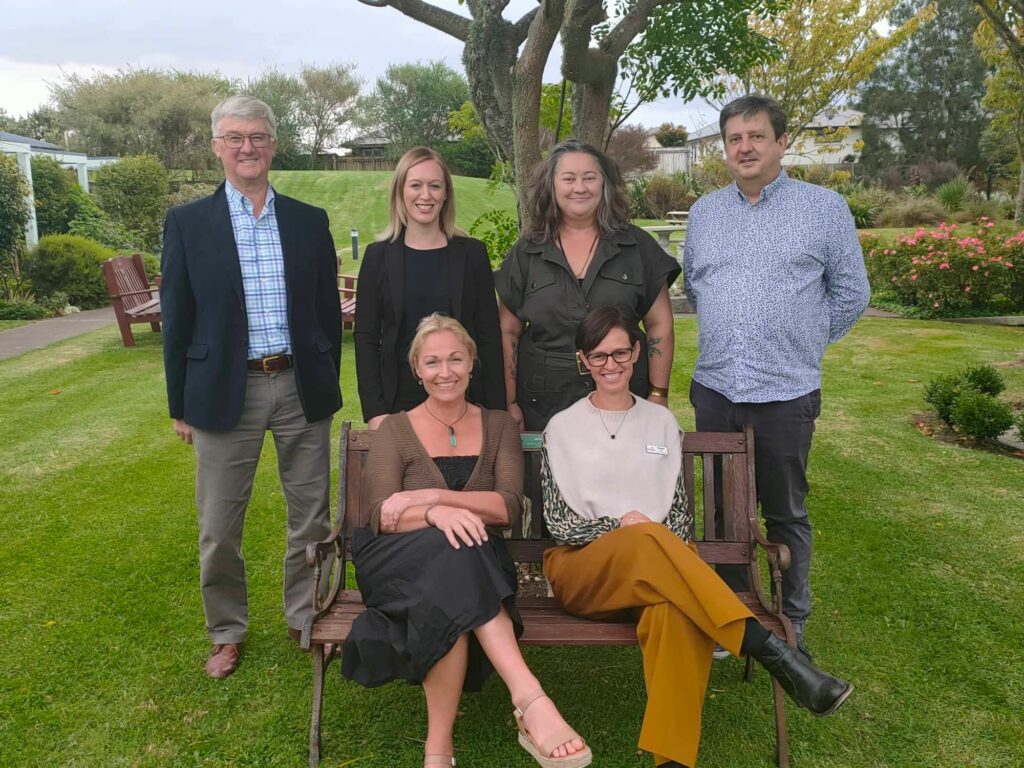The Board and Management of Hospice Whanganui are pleased to announce a series of important improvements to their service that will enable them to deliver excellent, specialist palliative care for patients and their whānau in the Whanganui community over the next 5 to 10 years.
The improvements reflect the outcomes of a review of the Hospice Whanganui service undertaken over the last 6 months. The Hospice team looked at modern palliative care models from around New Zealand, as well as the specific needs and goals of patients and whānau in our community.

HW Board Chairman Dr Andrew Zimmerman says “in looking at our service and what our patients’ needs and wishes are, we are seeing that there a things that are really important to people who have received a terminal diagnosis. In most cases our patients and their whānau express a wish to remain in their own homes, where they feel safe and where they can be surrounded by the people and the things that are important to them. With some excellent advances in in technology and medicines and the availability of better care supports in the community over recent years, these goals have become entirely achievable”.
In order to achieve a specialist service that is truly responsive, 24/7, that meets the needs of patients and whānau, the community will see a number of practical changes from the service. During the week there will be nurses and healthcare assistants working between the hours of 7am and 10pm, extending support to patients and whānau in their homes well into the evening. These staff will be supported by a specialist medical and social support team during the day. After 10pm they have a 24/7 on-call nurse and doctor that can be called at any time to address any issues that may arise overnight. This wrap-around service will provide assurance that they will be safe and comfortable wherever they are, at any time of the day or night.
Despite the fact that only a small percentage of Hospice patients are ever admitted to the In-patient Unit on St Johns Hill, the 5-bed unit will continue to be available for any patients who need and want to be admitted for a short time to manage any specific complex issues, or for patients who prefer an end of life care plan managed in the unit rather than at home.
A key opportunity the review revealed is the recognition that palliative care is a community effort not just the work of Hospice. With GP teams, rest homes, Māori healthcare providers, the hospital, district nurses and a range of other care agencies, all involved in the care of a palliative patient. CEO Davene Vroon says “We will increase our focus on delivering specialist education, training and support to these agencies. We will ensure that everyone is working closely together to provide excellent care for patients and that no-one falls through the cracks”.
Jude MacDonald, Chief Executive of the Whanganui Regional Health Network states “the Hospice Review is a welcome step towards a collective of providers working as one system, utilising each of our strengths to really make a difference at a time when whᾱnau need it most. I admire the courage the Hospice Whanganui Board and Leaders have shown to adapt to change and create added value. Having nursed my mother at home in her last days, to know that in the future there is a team of resources available to support us as a family at home, would have made such a positive difference. “
“Most importantly”, says Dr Zimmerman “is that we want Hospice to be equally accessible to all people – regardless of ethnicity, socio-economic situation or their location. We will provide the same level of excellent service to our Māori and rural populations as we do to non-Māori patients who live close to town. This review has enabled us to start breaking down the barriers that exist for some of our people in accessing our service when they need it. We have created a service that says; we are here to support you, whoever you are, wherever you live, that helps you live the life you want to live. We will come to you and you can be assured of excellent, specialist, 24/7 care, free of charge, whether you are in your own bed in your home, or in one of ours”.
Whanganui District Health Board acting chief executive, Andrew McKinnon, says “the principles of an equitable, patient and whānau-centred care are key and are completely in line with what we are trying to achieve through our own DHB strategy. Their vision puts individuals and whānau at the heart of everything they do which is exactly the right thing to do.”
“This Review has also given us the opportunity to look at how we can deliver our service in the most cost-effective way, particularly in the face of numerous pressures on budgets.” says Davene. “The DHB funds half of our costs and we rely on the generous giving and donations from our community for the remainder, which allows us to serve around 350 patients in our community each year. We want to give our supporters the utmost assurance that we are using every dollar to make a positive and lasting impact on people’s lives”.
